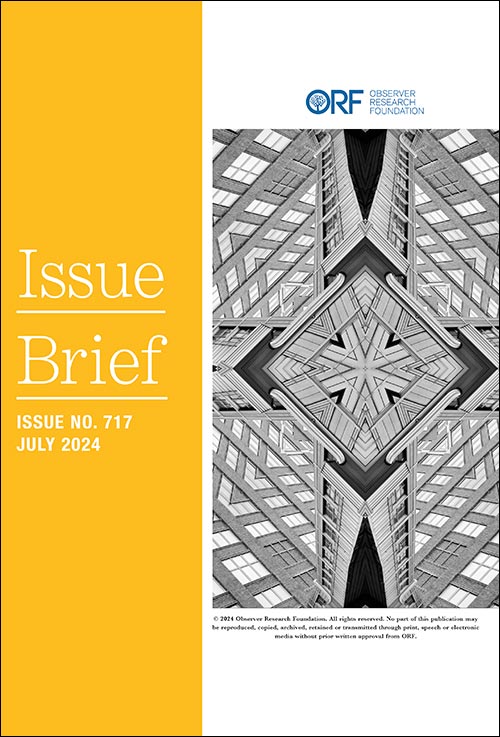.png)
Source Image: Indian Express
There is a renewed chorus in Washington affirming support for the Tibetan right to self-determination, potentially causing a fresh strain in US-China relations. A high-powered bipartisan US Congress delegation travelled to Dharamshala in India on 18 June to meet with the spiritual Tibetan leader in exile, the Dalai Lama. The fact that the bilateral relationship between the two leading economies of the world is high-stakes and has just been restored after subsequent derailments caused by the trade war, the COVID-19 pandemic and the former US House Speaker Nancy Pelosi’s visit to Taiwan against China’s will in 2022, there is some fear that the relationship could spiral downwards very rapidly.
At the heart of the current visit of a high-level US delegation to Dharamshala is the Resolve Tibet Act, formally known as the 'Promoting a Resolution to the Tibet-China Dispute’. This bill proposes a statutory definition of Tibet that encompasses not only the Tibet Autonomous Region (TAR) but also Tibetan areas within the Chinese provinces of Qinghai, Sichuan, Gansu, and Yunnan. Unlike the Chinese government's typical reference to Tibet, which is limited to the TAR, this broader definition aligns with the regions traditionally recognised as Tibetan.
The bill urges China to re-engage with the Dalai Lama and other Tibetan leaders towards peacefully resolving their disputes related to the status and governance of Tibet. Should the Act receive presidential assent, it would be incumbent upon the State Department to work with other governments in joint efforts to achieve a negotiated resolution on Tibet. These efforts range from political engagement to countering disinformation on Tibet. Washington’s intention should not be seen only through the lens of its competitive relations with China. After all, there has been no official communication between Tibetan and Chinese officials since 2010 and the visit may provide the much-needed nudge for bilateral engagement.
Washington’s signalling
The US government and the Congress have often come out against China’s actions in Tibet and Taiwan which thwart the democratic rights of the people and most importantly their right to self-determination. Washington has historically recognised Tibet as being part of China but has been vocal about the repression of rights, language, and culture inside Tibet. This new law could, indeed, push the boundaries of the Tibet question and reposition the broader US-China relations with strong reactions from China.
The US government and the Congress have often come out against China’s actions in Tibet and Taiwan which thwart the democratic rights of the people and most importantly their right to self-determination.
The former US House Speaker, Nancy Pelosi, who was part of this delegation has a long history of protests against China on issues of governance and undemocratic ways, going back more than three decades in her political career. Taiwan has been at the centre of Pelosi’s crusade against China’s authoritarianism and its undemocratic governance, sometimes to the extent that the personal and political have merged in her endeavours. Perhaps in her most stark moment politically, she is often remembered for her 1991 China visit where she held a banner protesting against China’s crackdown on demonstrators who were killed. Not surprisingly, the former House Speaker again co-led a bipartisan US Congress delegation to stick it to China.
House Foreign Affairs Committee Chairman Michael McCaul, together with Nancy Pelosi, led a new push from Washington to re-centre the Tibet issue. Washington’s motivations for doing so seem twofold. First, it stems from its democratic values and a longstanding policy of supporting freedom of expression and religion worldwide. Michael McCaul emphasised this when he said, “The Tibetan people possess a distinct religion, culture, and historic identity, and they should have a say in their own future. You should be able to freely practice your religion.”
The second motivation may be related to the significant shift in China’s attitude toward Taiwan, especially since the new government of Taiwan's President Lai Ching-te came to power. This shift has heightened tensions and underscored the importance of addressing broader regional stability and human rights issues. In this context, the US is reaffirming its commitment to supporting democratic movements and cultural preservation, not only in Tibet but also in other areas where such principles are under threat. This renewed focus on Tibet is part of a larger strategy to counteract China's growing assertiveness and to support international norms of self-determination and human rights.
The last time when Nancy Pelosi travelled to Taiwan in 2022, the US-China relations hit a major bump. Bilateral diplomacy became cold and military-to-military talks were cancelled. China even declined an invitation for a meeting from US Defense Secretary Lloyd Austin on the sidelines of the Shangri-La Dialogue in 2023. It took months for China and the US to resume military-to-military talks along with other conversations like those regarding the fentanyl drug.
The democratic and independent nature of the US Congress, with its clear separation of powers among the executive, legislative, and judicial branches, facilitates robust debates and engagements both domestically and internationally. Despite these clear divisions, all three branches can exert influence over each other to maintain checks and balances. This independence allows for some autonomous action, but not without accountability.
The democratic and independent nature of the US Congress, with its clear separation of powers among the executive, legislative, and judicial branches, facilitates robust debates and engagements both domestically and internationally.
The Executive branch often leads independent actions through the powers vested in the president, though such orders typically have a temporary mandate. Any decision with lasting policy implications must go through the legislature. An example of this is the powers granted to the president by the War Powers Act. Additionally, the executive branch sometimes takes suo motu cognisance of issues that require its attention and acts accordingly to understand and support them. These actions are often driven by democratic principles and the need to support external actors, stakeholders, and partners in need. These efforts underscore the US's commitment to aligning principles and values with democratic ideals worldwide.
Beijing’s apprehensions
China attempted to pre-emptively sabotage the US delegation's visit by sending a letter to the Congress warning them against the visit. The fact that the US delegation travelled to Dharamshala regardless of China’s warning and anticipated reactions from Beijing, may serve as a pointer to the larger set of domestic politics and broader geopolitics which may play out as a result.
China’s anxiety regarding Tibet stems from the fact that it has not been able to completely erase the Dalal Lama’s influence in the region. There have been efforts by China to assert more control over organised religion across China, particularly in Tibet. Senior officials of the Communist Party of China (CPC) have emphasised the need to build a “politically reliable” religious class who bear affection for their nation and religion. Curiously around the Congressional delegation toured Dharamshala, Chinese President Xi Jinping visited a Tibetan Buddhist shrine in Xining, Qinghai’s provincial capital, where he reiterated his point about “creating a sense of community for the Chinese nation”, and “promotion of national unity”. The CPC has sought to control Buddhist institutions and manipulate the reincarnation narrative. For instance, the 11th Panchen Lama, who was a child when he was endorsed in the 1990s, disappeared, following which Beijing propped up its own candidate for the important position in Tibetan Buddhism. With the question of the Dalai Lama’s succession up in the air, one cannot rule out Beijing repeating its act.
Politically, the visit of the US Congress delegation to Dharamshala could open a new contested front between the US and China. This visit comes amid a deteriorating security situation in the South China Sea between China and the Philippines, a US ally. Issues of sovereignty, tensions over Taiwan, and China's unimpeded de jure control of Hong Kong, followed by political repression and changes in domestic laws, have all contributed to a renewed American focus on creating additional pressure points for Beijing. For the West, establishing more checks and balances with Beijing is a crucial strategy to restrain China's unchecked behaviour. The growing Russia-China axis and Beijing’s subtle support for Russia since the war in Ukraine began have already complicated the West’s options in dealing with China on multiple fronts.
Politically, the visit of the US Congress delegation to Dharamshala could open a new contested front between the US and China. This visit comes amid a deteriorating security situation in the South China Sea between China and the Philippines, a US ally.
The Biden administration has faced challenges with its Indo-Pacific policy, especially given the increasing regional belligerence from China and its diverted focus on the ongoing wars in Europe and the Middle East. In this context, a legislative push against China could positively impact Biden’s poll numbers, which have consistently lagged behind those of Donald Trump.
Meanwhile, the stakes for India are higher in this game, considering that both the Indian Army and the People’s Liberation Army are locked in a standoff along the border. Besides, one must remember that one of the primary triggers for the 1962 War was China’s suspicion that India wanted to weaken its grip on Tibet. India must prepare for any eventuality stemming from China’s perceived US-India pincer on Tibet.
Vivek Mishra is a Fellow with the Strategic Studies Programme at the Observer Research Foundation.
Kalpit Mankikar is a Fellow with the Strategic Studies Programme at the Observer Research Foundation.
The views expressed above belong to the author(s). ORF research and analyses now available on Telegram! Click here to access our curated content — blogs, longforms and interviews.



.png)
 PREV
PREV



.png)